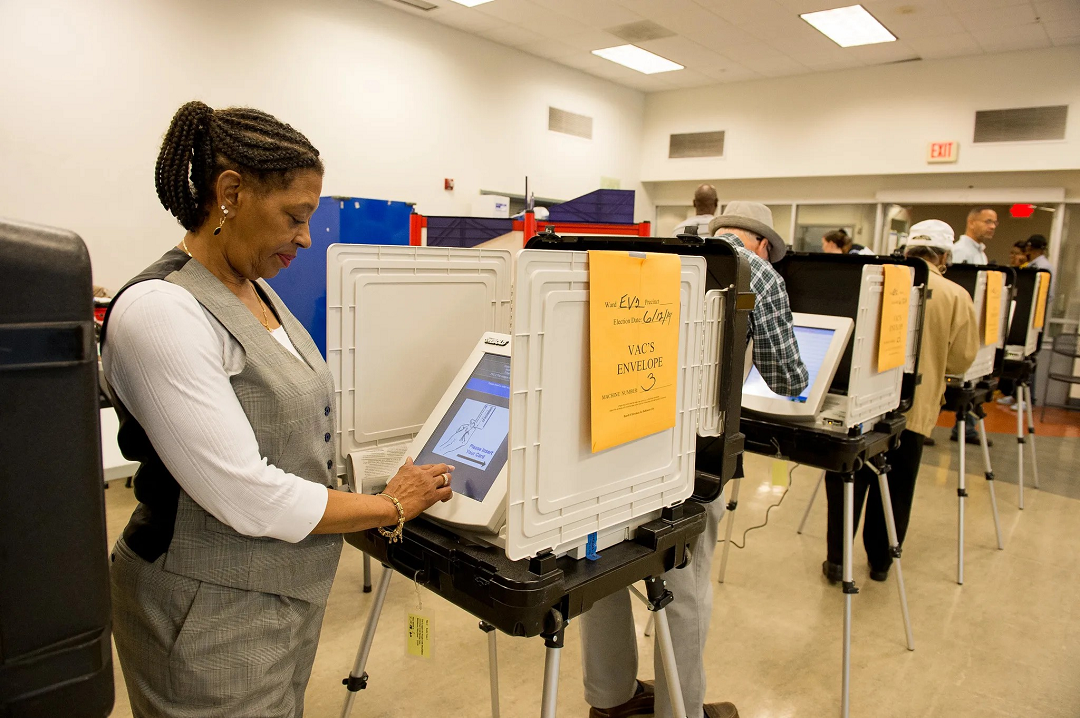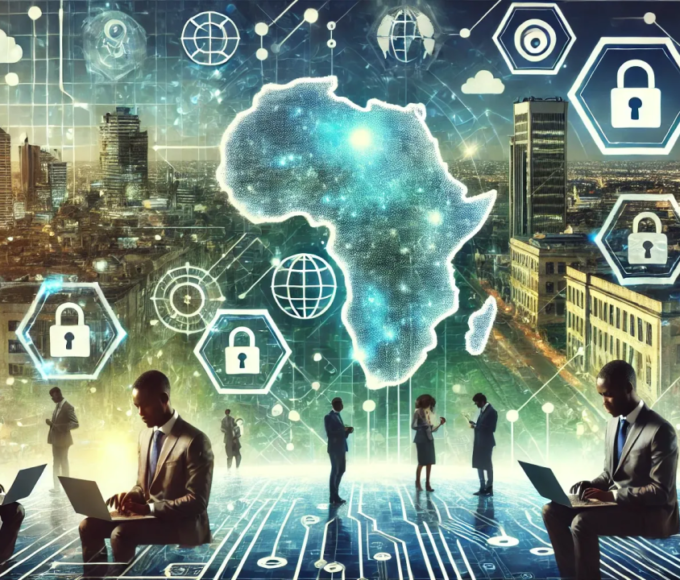
CYBERSECURITY AND ELECTION SECURITY IN AFRICA
Africa’s rapid digital transformation has placed the continent at a critical juncture where cybersecurity directly intersects with democracy particularly during elections. With internet penetration surpassing 40% in 2024 and mobile money systems expanding rapidly, electoral processes now rely heavily on digital platforms for voter registration, results transmission, and public communication. Yet this digitization introduces new vulnerabilities that can erode trust in democratic institutions.
In 2024, a “super-cycle” of elections across more than 18 African countries underscored these risks, as disinformation campaigns and cyberattacks became central threats to electoral integrity. Analysts note that Africa’s fast-growing digital economy worth billions through initiatives such as the Pan-African Payment and Settlement System magnifies these stakes, making election security a cornerstone of both democratic resilience and regional stability.
Related Article: STATE VS. NON-STATE CYBER ACTORS IN AFRICA
Government institutions and financial systems remain frequent targets of ransomware, phishing, and data breaches—incidents that collectively cost African economies billions of dollars each year. Between Q1 2023 and Q3 2024, the continent recorded a surge in state-sponsored espionage and online fraud, driven by inconsistent enforcement of cybersecurity laws. Initiatives like Ethiopia’s Digital Ethiopia 2025 strategy demonstrate attempts to integrate AI and international best practices, but regulatory frameworks have struggled to keep pace with Africa’s accelerating digitalization leaving critical information infrastructure exposed.
Election security in Africa now encompasses more than ballot protection it involves defending the entire electoral ecosystem from digital interference. Hybrid threats that blend cyber operations with physical disruptions have become increasingly sophisticated.
In 2024, elections in Senegal, South Africa, and Mauritius faced coordinated disinformation efforts designed to sow distrust. Many of these campaigns often traced to foreign actors including Russian and Chinese networks spread false narratives about fraud or candidate legitimacy through social media amplification. Unlike direct intrusions into voting systems, which remain rare due to limited connectivity, these efforts focus on perception warfare: manipulating public opinion and undermining electoral management bodies (EMBs).
International IDEA has identified cybersecurity as one of the foremost challenges facing African elections, requiring tight coordination between EMBs, security agencies, and technology experts to safeguard integrity at every stage of the electoral process.
Among the many cyber risks, disinformation remains the most potent. AI-generated deep fakes, bot networks, and coordinated propaganda campaigns have increasingly been used to distort political discourse. During South Africa’s May 2024 polls, social platforms were flooded with misleading content designed to erode confidence in the process—mirroring tactics seen during Kenya’s 2017 elections, where online manipulation fueled post-election unrest.
Beyond disinformation, direct cyberattacks pose serious operational risks. Distributed Denial of Service (DDoS) attacks on election result portals, breaches of voter databases, and phishing attempts targeting election officials have all been documented.
In July 2024, hackers advertised access to Uganda’s Ministry of Education systems on the dark web an incident that underscored vulnerabilities in broader public-sector networks. Ransomware attacks could delay vote counting, while hybrid disruptions such as GPS jamming during polling, previously reported in African elections, further complicate security efforts. Positive Security’s Threats cape 2023–2024 analysis found a marked increase in such hybrid threats, often linked to cybercriminal groups exploiting Africa’s resource-rich sectors to finance operations.
The 2025 election calendar including polls in Gabon (April), Malawi (September), and Tanzania, Cameroon, and Côte d’Ivoire (October) will serve as a test of Africa’s resilience against evolving cyber threats. International SOS has warned of the potential for cyber elements to amplify unrest during these events.
Nevertheless, regional collaboration is gaining momentum. Events such as CYSEC Africa 2025 in Johannesburg and Cyber Week Africa in Nairobi are fostering continental dialogue on the dual-use nature of AI in both cyber offense and defence. Meanwhile, the African Network of Cybersecurity Authorities (ANCA) continues to strengthen coordination, with its 2025 Rabat session focusing on cyber diplomacy and joint capacity building.
Public-private partnerships such as Cisco’s Digital Acceleration in Africa can bridge capacity gaps through training and infrastructure support. Legislative reforms should mandate regular cybersecurity audits for EMBs, while partnerships with international agencies like the U.S. Cybersecurity and Infrastructure Security Agency (CISA) can enhance intelligence sharing on foreign interference.
Equally vital are citizen-focused efforts: digital literacy and voter education campaigns have proven effective in reducing the impact of disinformation. Empowering voters to identify manipulated content transforms them into the first line of defence for electoral integrity.
Through continued investment, cooperation, and innovation, Africa can transform from a landscape of vulnerability into a vanguard of cyber-resilient democracy. Platforms such as Africa Cyber fest 2025 and ANCA’s ongoing initiatives offer a path forward, ensuring that technology strengthens rather than subverts the continent’s democratic aspirations.
King Richard Igimoh, Group Editor ALO
King Richard Igimoh, Group Editor African Leadership Organisation is an award-winning journalist, editor, and publisher with over two decades of expertise in political, defence, and international affairs reporting. As Group Editor of the African Leadership Organisation—publishers of African Leadership Magazine, African Defence & Security Magazine, and Africa Projects Magazine—he delivers incisive coverage that amplifies Africa’s voice in global security, policy, and leadership discourse. He provides frontline editorial coverage of high-profile international events, including the ALM Persons of the Year, the African Summit, and the African Business and Leadership Awards (ABLA) in London, as well as the International Forum for African and Caribbean Leadership (IFAL) in New York City during the United Nations General Assembly.
Recent Posts
Categories
- Air & Aerospace16
- Border Security15
- Civil Security4
- Civil Wars4
- Crisis5
- Cyber Security8
- Defense19
- Diplomacy19
- Entrepreneurship1
- Events5
- Global Security Watch6
- Industry8
- Land & Army8
- Leadership & Training5
- Military Aviation5
- Military History27
- Military Speeches1
- More1
- Naval & Maritime9
- Resources2
- Security12
- Special Forces1
- Systems And Technology9
- Tech6
- Uncategorized3
- UNSC1
- Veterans6
- Women in Defence9
Related Articles
RETHINKING HUMAN SECURITY IN AFRICA’S CHANGING DIPLOMATIC LANDSCAPE
Africa’s diplomatic and security thinking is undergoing a quiet but significant shift....
ByKing Richard Igimoh, Group Editor ALODecember 30, 2025AFRICA’S CYBERSECURITY STANDING IN A HIGH-RISK DIGITAL AGE
Africa’s rapid digital expansion has brought economic opportunity, but it has also...
ByKing Richard Igimoh, Group Editor ALODecember 29, 2025SKIES OF ALLIANCE: HOW JOINT AIR EXERCISES RESHAPED GLOBAL AEROSPACE SECURITY IN 2025
From July 10 to August 8, 2025, the U.S. Pacific Air Forces...
ByKing Richard Igimoh, Group Editor ALODecember 16, 2025AFRICA’S DIGITAL FORTRESS: HOW THE CONTINENT IS BUILDING CYBERSECURITY LAWS IN AN AGE OF RANSOM AND ESPIONAGE
From Cape Town to Cairo, African governments are racing to enact cybersecurity...
ByKing Richard Igimoh, Group Editor ALONovember 24, 2025











